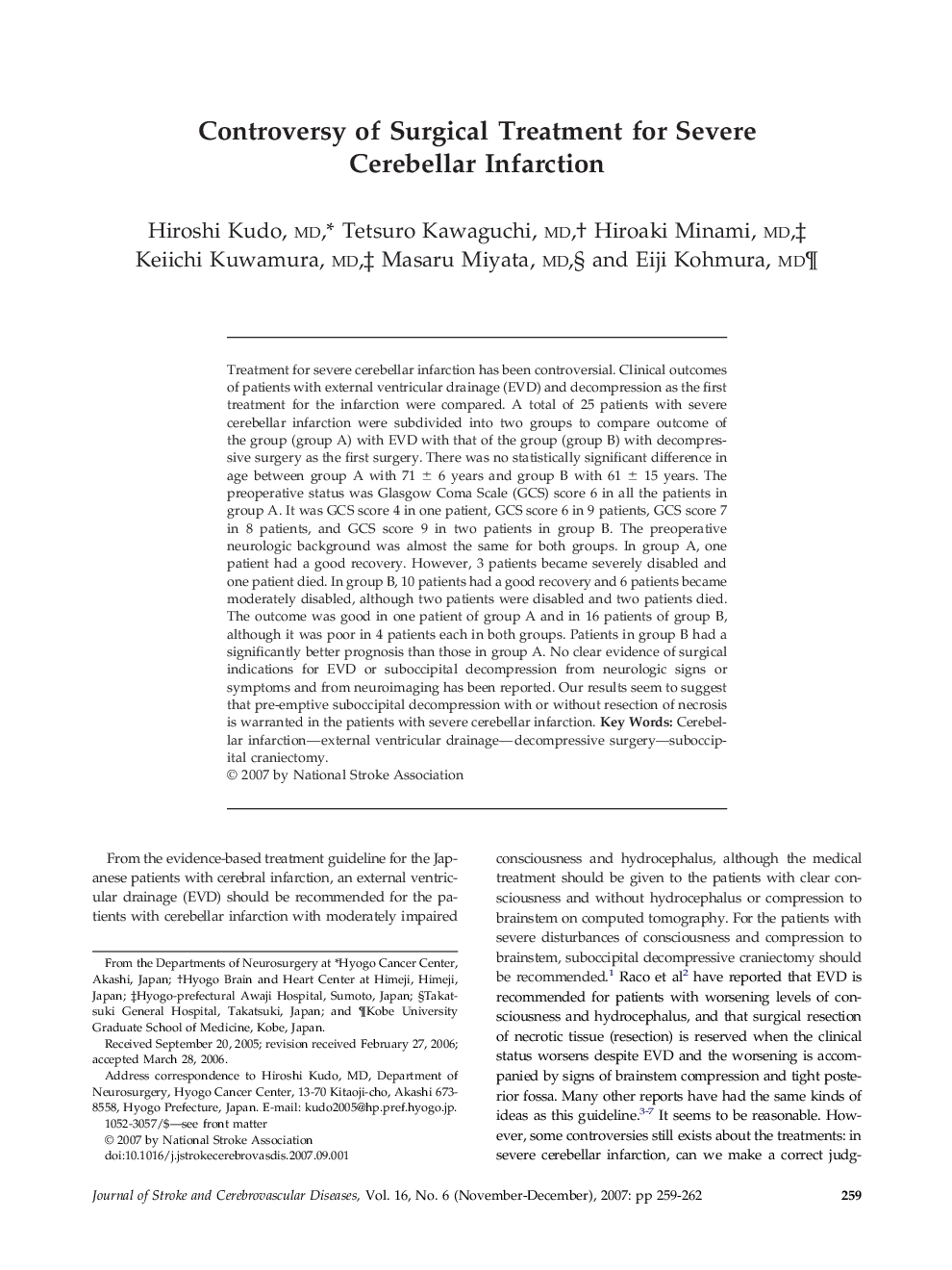| Article ID | Journal | Published Year | Pages | File Type |
|---|---|---|---|---|
| 2704679 | Journal of Stroke and Cerebrovascular Diseases | 2007 | 4 Pages |
Treatment for severe cerebellar infarction has been controversial. Clinical outcomes of patients with external ventricular drainage (EVD) and decompression as the first treatment for the infarction were compared. A total of 25 patients with severe cerebellar infarction were subdivided into two groups to compare outcome of the group (group A) with EVD with that of the group (group B) with decompressive surgery as the first surgery. There was no statistically significant difference in age between group A with 71 ± 6 years and group B with 61 ± 15 years. The preoperative status was Glasgow Coma Scale (GCS) score 6 in all the patients in group A. It was GCS score 4 in one patient, GCS score 6 in 9 patients, GCS score 7 in 8 patients, and GCS score 9 in two patients in group B. The preoperative neurologic background was almost the same for both groups. In group A, one patient had a good recovery. However, 3 patients became severely disabled and one patient died. In group B, 10 patients had a good recovery and 6 patients became moderately disabled, although two patients were disabled and two patients died. The outcome was good in one patient of group A and in 16 patients of group B, although it was poor in 4 patients each in both groups. Patients in group B had a significantly better prognosis than those in group A. No clear evidence of surgical indications for EVD or suboccipital decompression from neurologic signs or symptoms and from neuroimaging has been reported. Our results seem to suggest that pre-emptive suboccipital decompression with or without resection of necrosis is warranted in the patients with severe cerebellar infarction.
